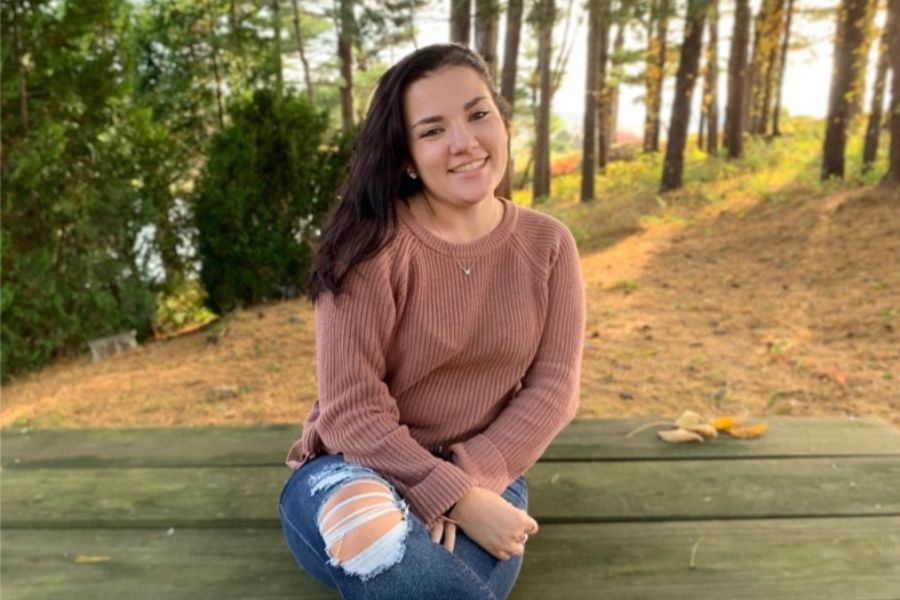Welcome to Celiac-Self Care! In this series, we’re exploring the ways in which celiac disease affects quality of life and sharing the self-care strategies that help our Reach Beyond Celiac Ambassadors cope.
In this post, ambassador Christina Heiser chats with ambassador Alyssa Megee. Learn about Alyssa’s experience growing up with celiac disease, the challenges of navigating this autoimmune in condition in college, and how meditation helps her relax.

By Christina Heiser
I was diagnosed 13 years ago. I’m 21 now, so I was pretty young. No one really knew what celiac disease was then. I only got tested because my grandmother had it. I had mono before my diagnosis, and doctors think that may have been what triggered it for me.
At the time, there were only one or two brands of gluten-free food. Nobody had any idea what I was talking about. But my parents were huge advocates for me, so luckily the experience wasn’t that hard because I had my parents and my family supporting me.
My mom was a stay-at-home mom, and she was always on lunch duty at my school. So I would always have her around. Growing up, I thought, “Oh, if I eat gluten-free, I’m fine.” I didn’t think it was a big deal at all when I was a kid. But as I’ve gotten older, I’ve realized celiac disease very much does affect my mental health.
Going out to eat was definitely a big one in high school. I have a distant memory of me sitting in a restaurant with my friends, and they were all hungry after a football game.
They were like, “Oh, we just want to eat, we want our food.” And they asked why it was taking so long and the waiters were like, “It’s because of her. She ordered gluten-free.” That was the first time it really affected me. I remember apologizing, but I was thinking, “Why am I apologizing? I shouldn’t be.”
In college, I stayed at home for the first two years because I didn’t know what I wanted to do exactly. But I would never eat at my community college. I would just go home and make food. I didn’t trust it at all. Then COVID-19 happened, and we all got stuck at home. So this is actually my first and last year living at school.
But I don’t trust dining at all. There’s no talk about celiac disease on my campus. I don’t have many options for food there. I try to make all my meals at home, but it’s difficult. I have to worry about cross-contact because my roommates make food too. It’s definitely been stressful and has taken a toll on my mental health. It’s a lot.
I was surprised at how celiac disease affects every system in the body—it affects mental health, it can cause vitamin deficiencies, etc. After I was diagnosed with celiac disease, I found out I had osteopenia, which is the beginning of osteoporosis.
I also wasn’t expecting how people would treat me—little comments people made to me. That pushed me to not go out as much. When I advocate for myself, I get so frustrated sometimes. A lot of people don’t think celiac disease is that serious because you don’t need to take medication for it every day.
I usually go for walks or listen to music. I also like to meditate, which helps calm me down.
As you know, celiac disease is something that never stops. It keeps on going. I never realized how much it affected mental health until recently, but being on campus this year has given me a new perspective.
It can be overwhelming to think about everything that goes along with celiac disease. I think you have to take it day by day, take a deep breath, and know that it all will work out in the end.
Opt-in to stay up-to-date on the latest news.
Yes, I want to advance research No, I'd prefer not to